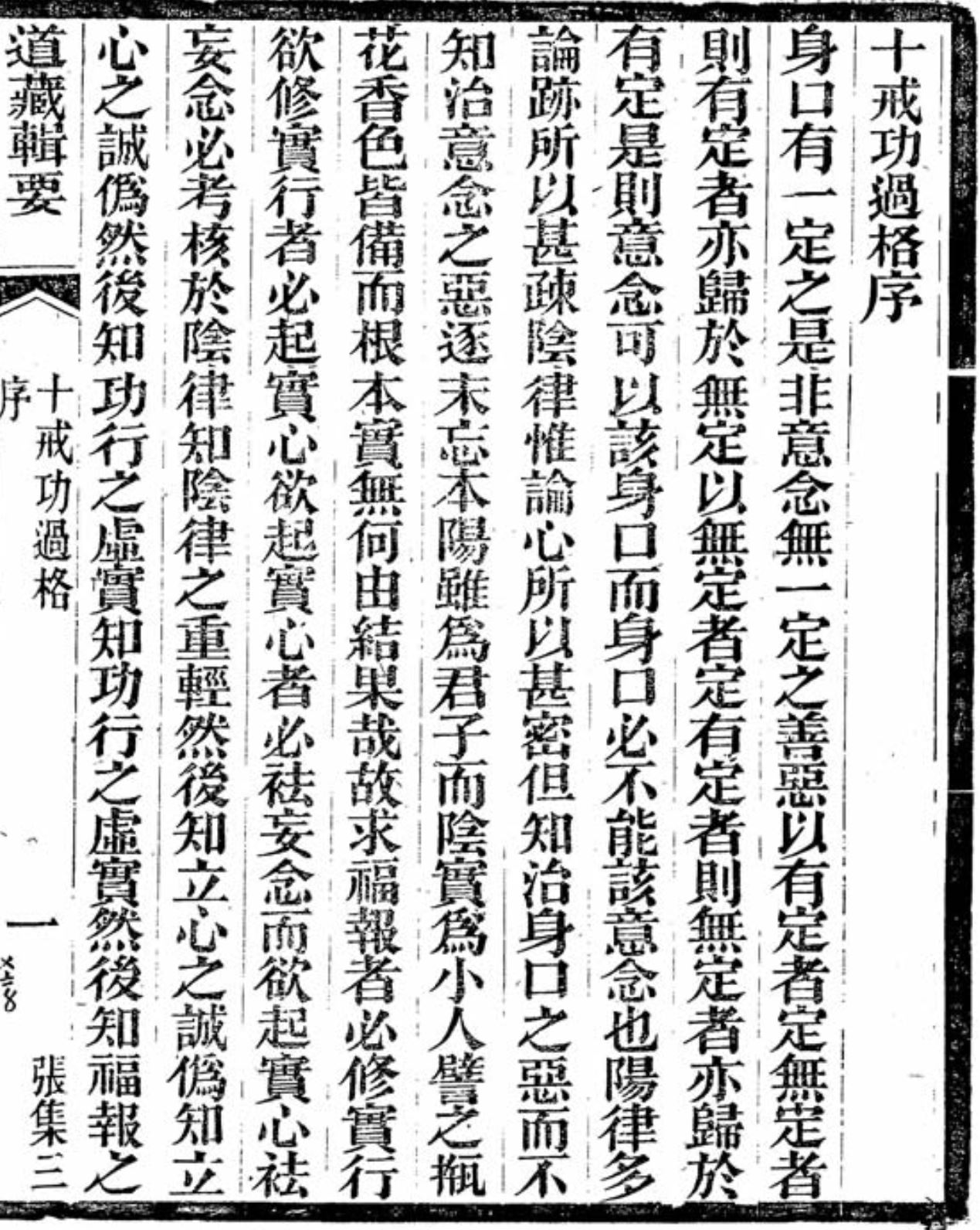十戒功過格 - E134
十戒功過格 shi jie gong guo ge |
| 別名 Other Titles: |
| 有關人物 Associated Persons: 純陽子, 呂祖(呂洞賓)
出版地區 Place(s) of Publication: None Known 版式 Format: Select one of the following: 木刻版 出版者 Publisher(s): None Known 出版年 Publication Date: 載於 Located In: Zangwai daoshu - E Volume 12 |
| Cite as 引用為: "CRTA 十戒功過格 - E134" |
Shijie gongguoge 十戒功過格; Ledgers of Merit and Demerit of the Ten Commandments is a morality book revealed by the legendary Daoist Patriarch and Immortal 呂洞賓 (791-880), via spirit writing, to his disciples.
The text provides disciples with a guideline for calculating the sum of "points" of merit and demerit accumulated in their daily life to achieve salvation and deliverance, which was determined by a detailed system of moral judgment of their behaviours and deeds in reference to the Ten Commandments.
別名 Other Titles
出版地區 Place(s) of Publication
No Additional Information
出版年 Publication Date(s)
No Additional Information
有關人物 Associated Person(s)
No Additional Information
內容 Contents
- 一戒殺
- 二戒盜
- 三戒淫
- 四戒惡口
- 五戒兩舌
- 六戒綺語
- 七戒妄語
- 八戒貪
- 九戒瞋
- 十戒癡
序跋等 Prefaces and Postfaces
- 十戒功過格序
註疏 Commentary
This is the reprint of the Chongkan Daozang jiyao edition 十戒功過格 - A276
Ledgers of Merit and Demerit
功過格 is a popular type of morality book popular in late imperial China. It takes the form of self-disciplinary journal for individuals (often Daoist and Buddhist practitioners) to evaluate their deeds and behaviours in daily life, to which certain numbers of merit or demerit points would be assigned based on different tenets or guiding principles. A shared belief underlying such practices was that accumulated merits would be rewarded (not necessarily in this world), whereas demerits would lead to punishments or karmic retributions.
It was recorded to help certain groups of Daoists and Buddhists achieve salvation since the twelfth century, but it was only during the sixteenth and seventeenth century that 功過格 gained unprecedented popularity around China.
Buddhist 十善業
There is significant overlap between Daoist Ten Commandments in the 十戒功過格 and the Mahayana Buddhist Ten Good Works(Daśa-kuśala-karmāni), a set of moral precepts to be observed by lay practitioners.
參考文獻 Bibliography
Brokaw, Cynthia Joanne. The Ledgers of Merit and Demerit: Social Change and Moral Order in Late Imperial China. Princeton: Princeton University Press, 1991.
電子全文 Digital Fulltext
Kanripo digital edition [1]
